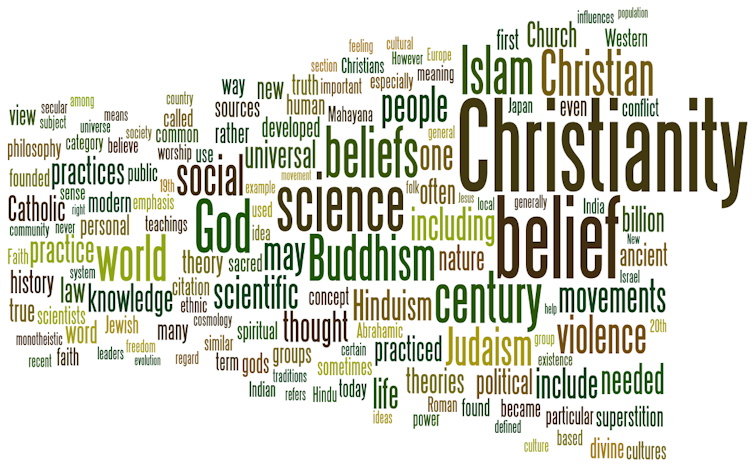
It’s a plain truth that democracies everywhere are witnessing the resurgence of religious bigotry. There are moments when it feels even as if something like a new global religious war has begun, on several fronts. Ignorant media hype, foul abuse of the faith or godlessness of others, ugly violence calculated to scare and kill: such practices are now familiar features of daily life in democratic polities where religion was once supposed to be a settled issue.
India is no exception to the troubling trend. The democracy with the most innovative constitutional formula for handling tensions among multiple faiths - the Indian brand of secularism - is nowadays plagued by organised bigotry, often led by elected representatives bent on outfoxing their opponents and winning elections. The thuggish tone is audible in the recent remarks of Manohar Lal Khattar, chief minister of the BJP-run state of Haryana. ‘Muslims can continue to live in this country but they will have to give up eating beef. The cow is an article of faith here’, he told The Indian Express. ‘Culturally, we are democratic’, he added. ‘Democracy has freedoms, but those freedoms have a limitation. Freedom of one person is only to the extent that it is not hurting another person.’ Khattar conveniently forgot to mention that growing numbers of India’s Muslim citizens (they’re one-seventh of the total population) feel deeply offended and threatened by such remarks, and by the rising numbers of murderous assaults they’re facing throughout the country. Proud defender of his state’s strict ban on the killing of cows, in a country that is among the world’s largest beef exporters, Khattar instead went on to defend the mob that recently beat to death a Muslim farmer for allegedly eating beef at home. It was the ‘result of a misunderstanding’, he said, and ‘both sides’ had committed wrongs. He claimed the victim had made a ‘halki tippani [loose comment]’ about cows which hurt the sentiments of the men who subsequently went on the rampage. Khattar compared the incident with a man whose anger gets the best of him after seeing his mother being killed, or his sister molested.
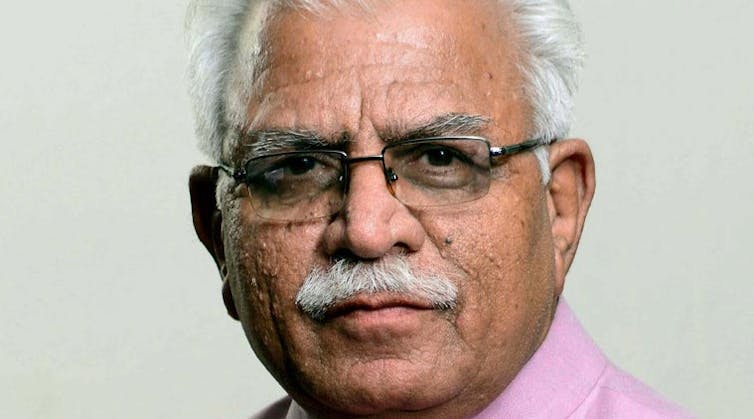
Many observers, especially those with no sense of religiosity, draw from remarks of this kind the conclusion that religion is plainly bad for democracy. In fact, both the history of democracy and contemporary developments reveal a much more complex and contradictory picture, as the following dialogue on religion tries to show. Conducted in Melbourne by the distinguished young Indian anthropologist Irfan Ahmad, the conversation covers a wide range of issues to do with democracy and religion. Published in three parts, it sheds light on the fascinating relationship between democracy and the deities since the age of the ancient Greek democracies. It reveals that democracies have rarely been irreligious. The conversation dwells on such matters as the invention of the word religion, power and courage, the ethics of pluralism, Christianity and representative democracy, the French Revolution, Indian secularism, the unfinished revolutions in the Arab world and (yes) dogs and democracy.
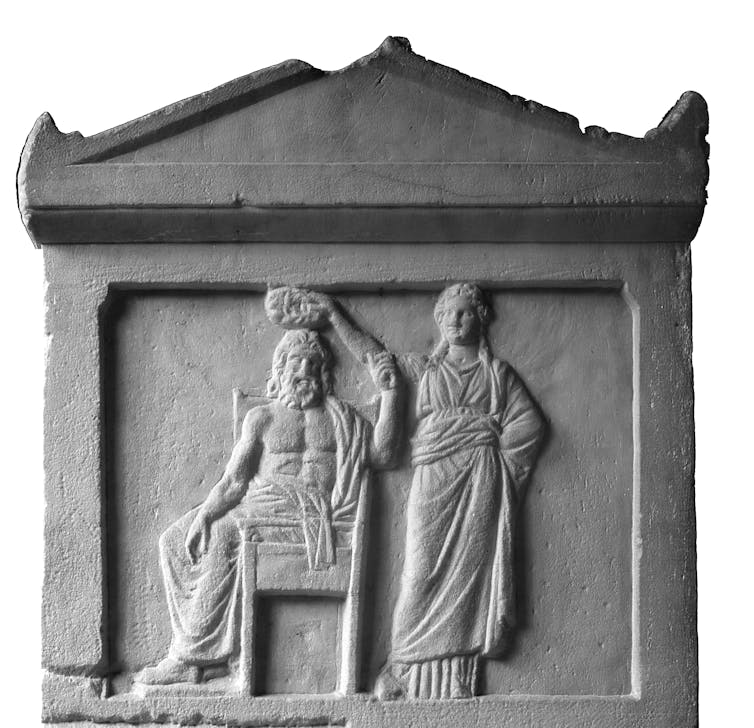
***Irfan Ahmad *(IA):** Let me begin by asking a general question you have touched upon in an earlier writing on secularism. In dominant Western thinking, democracy and religion are assumed to be neatly separated. Is it not that, philosophically and broadly speaking, democratic politics, even in its secular form, is also religious in much the same way as religion has been and is always political? Writing about contemporary America, for instance, David Bromwich speaks of ‘evangelical democracy … itself an apocalyptic faith’.
John Keane (JK): To say democracy is a form of apocalyptic faith is for many contemporary democrats a prickly provocation. They’d no doubt reply that democracy is a thoroughly secular ideal. They’d say it’s a principled this-worldly belief that the power to decide who gets what, when and how on earth should be shared equally by people and their representatives, and not monopolised by tyrants, dictators, despots, tradition, Nature and God or the deities. When seen in this way, democracy is more than the opposite of religious belief in a transmundane world. It is its antidote, the remedy for its illusions.
This secular understanding of democracy correctly puts its finger on what I call the originality of democracy. Understood simply as the ideal of people governing themselves, democracy implies something radical: it supposes that humans can invent and harness special institutions to decide for themselves how they live together on Earth.
It may seem very straightforward. But when you think about it, the whole idea that flesh-and-blood mortals can organise themselves as equals into forums or assemblies, or constituencies, where they pause and consider and then decide this or that or some other thing, democracy in this sense is an extraordinary invention of breathtaking scope. It is in effect the quintessentially human form of government. All government is of course ‘human’ in the sense that it is created and built up and operated by human beings. The exceptional – out-of-the-ordinary – feature of the type of government called democracy is that it requires people to see that life is never merely given, that nothing that is human is forever, that all human institutions and customs are built on the shifting sands of time and place, and that if people are to acknowledge their equal vulnerability to the evanescence of human existence then they have no option but to build and to maintain ways of living openly and flexibly.
IA: So, there’s a point to secular understandings of democracy?
JK: Yes, but for me the trouble is that those who draw from this the secularist conclusion that democracy is the mortal enemy of religion, that it’s a superior earthly remedy for other-worldly religious nonsense, are mistaken. They get two things wrong. They forget there have been many historical moments when democracy was literally idolised, imbued with ‘other worldly’ qualities, and worshipped as such. Think of the way President George W. Bush, on the eve of the American-led invasion of Iraq, repeatedly said that democracy was a gift of God to the world; or the way the American version of democracy depends on public tropes like ‘in God we trust’ (it first appeared on banknotes and coins in the 1860s) or ‘one nation under God’ (the last two words of which were incorporated in the American Pledge of Alle- giance only in 1954). Then let’s go back in time, to think of the way the goddess dēmokratia was worshipped in Athens. She attracted a cult following. Stone and wooden monuments to her stood within the agora. She was offered prayers and public sacrifices: cakes, loaves of bread, wine and honey, the slaughtering and burning of goats or spring lambs. Her mysterious authority couldn’t be profaned, as we know from the famous relief picture carved in stone above an Athenian law of 336 BCE. It shows the goddess dēmokratia crowning, shielding and sheltering an elderly bearded man who represents the dēmos, the people.
Blindly secular understandings of democracy ignore something else. My interpretation of the history of democracy suggests that the whole history of the spirit and language and institutional inventions that we now call democracy are closely connected with gods and goddesses and conceptions of God, the transmundane, the beyond, what William James famously called in his Edinburgh lectures ‘the more’. Historically speaking, democracies committed to laïcité – the marginalisation or outright extinction of religious belief – are utterly exceptional.
IA: And doesn’t this connection between democracy and God or the transmundane run deeper, through medieval Christianity back to Athens, where democracy and gods stood connected, not separated?
JK: Archaeologists tell us that Athens was not a secular city in any recognisably modern sense. It was not an irreligious democracy. Its entire ethos mixed together the sacred and the profane, to the point where talk of the separation of religion and politics would have made no sense to Athenians. In the early 440s BCE, the first Sophist, Protagoras of Abdera, told Athenians that man was the measure of all things, including the deities, who perhaps did not exist, except in men’s minds. Others probably agreed, or silently pondered the same thought. But the reality was that Athenian democracy was widely seen through supernatural eyes. Those who accepted its terms were not in a position to take it or leave it, as and when they pleased. They had learned from an early age, in the religious cults and rituals practised within their own households, that life was anchored firmly in a polytheistic universe of gods and goddesses – in a community of deities who infused the democracy with a strong sense of sacred standards for life on earth.
IA: Seldom do we hear or read about this religious feature of Athenian democracy.
JK: That’s because of the grip of mundane thinking on most scholars of democracy, past and present. Truth is that the citizens of Athens invested great hopes in the deities. They also feared them. The public trial and execution of the philosopher Socrates in 399 BCE for importing fake gods into the city, and for impiously corrupting its youth, confirmed to many that individuals who snubbed the deities would suffer harsh punishment. The priests and old men of the city loved to reinforce the same moral. They had a habit, drawn from a story by Homer, of reminding citizens who mingled in the agora that at the entrance of the home of Zeus, the god of freedom, stood two large barrels, from which he dispensed ill to some newcomers, good to others, and to the rest a few ladles of good from one barrel and, from the other, a bit of ill. Tales like that put the whole city on edge. We may scoff at these deep feelings for the sacred. But the reality was that many citizens of Athens thought of themselves as members of a community of worshippers who believed that deities like Zeus would punish them collectively if they or their leaders behaved unjustly. He and other deities were thought to enjoy the power to ruin democracy, for instance, by bringing bad weather or failed harvests, or the disappearance of fish from the nets of fishermen operating from the nearby port of Piraeus. That’s why the deities had to be feared and loved, respected and worshipped; and why the goddess Dēmokratia was worshipped by a cult following. The consequence was that many Athenians in fact thought of their democracy as a system for establishing and enforcing the will of the deities, who in turn authorized the exercise of human powers. The deities were seen as wisdom’s well spring. They soothed the doubts of mortals. They calmed their fears and gave them courage and direction to act in worldly affairs. Divination and democracy were twins.
IA: Most accounts of democracy rarely tell the story you narrate about Athens. But aren’t there more uncharted dimensions of the relationship between gods and democracy, and not just in Athens? To use Max Weber’s phrase, aren’t there ‘elective affinities’ between democracy and religion?
JK: Yes, you’re right. To understand why and how, historically speaking, democracy is bound up with divination, we need to understand in broad-brush terms the functional interrelationship or ‘elective affinities’ between forms of democracy and forms of divination. There are lots of nuances and paradoxes here, but I can think of a handful of functional affinities between democracy and divinity.
IA: What are these? Can you specify them?
JK: Most obviously, since democracy enables freedom of association and the public questioning of power it stirs up a sense of contingency that ‘reality’ is not ‘real’, that things can be otherwise, that existing relations of power are not necessarily set in stone but are contingent, and alterable. The civil and political freedoms offered by democracy enable believers to join in solidarity to protect and extend their faith. David Martin has recently pointed out that the drive to secularism in many democracies has not displaced religion; it has instead stirred up religious enthusiasms. He’s right. Religiosity often flourishes under democratic conditions, and especially in troubled times. There are moments when democracy in action foments strife and flings people into the arms of liminality. We know historically of extreme instances – the outbreak of the American Civil War and the self-destruction of democracy in Weimar Germany – where democracy prepared the grounds for democide, the self-destruction of democracy. It is in these contexts of spreading uncertainty that religiosity, the belief in ‘the more’, in something beyond this world, serves as something of a comforting shock absorber for dealing with earthly disorientation and instability. In those moments when democracy unleashes bitter power struggles, or tragedies such as the assassination of a leader happen, people come to sense their lives to be drifting into an abyss. That’s when a shared sense of religiosity can provide stability, a place in the world for people gripped by the feeling that their lives are unbearably light and meaningless.
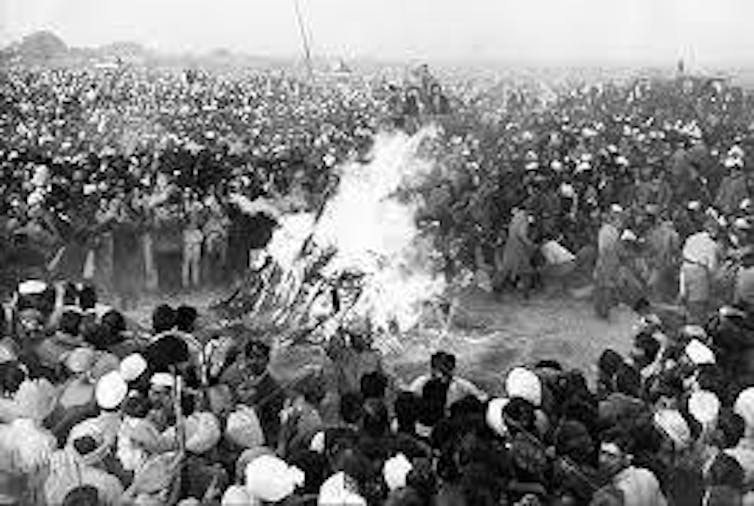
There’s a second and more direct functional connection between democracy and religion. Divination serves to remind flesh and blood mortal citizens who live in any given democracy of their own mortality. Religion is a custodian of the core democratic value of humility. Friedrich Schleiermacher (1799) wrote that religion involves the feeling of ‘absolute dependence’ upon a higher order. It also bolsters the capacity to feel piety (he used the word Frömmigkeit) in the face of this dependence upon a transmundane world and, hence, the need to act in humble ways. If you attend a Quaker meeting – in a circle of silence – you’ll see and feel the meaning of piety. The meeting among worshippers is a manifestation of pious down-to-earthness, a sign of the mortality of those who have gathered, and their need for humility. Another case of piety in action is the democratising role played by Christians in China, where Christianity is experiencing its most rapid growth ever. Ian Buruma and other scholars have pointed out that it’s no accident that a disproportionate number of self-declared democrats who believe in pluralism and complexity, who favour local forms of monitory democracy (jiān dū shì mínzhǔ) are Christians. Their feeling of dependence upon a higher order of being nurtures their resilience, adds courage, stokes their willingness to stand up against arbitrary power.
IA: If I understand you correctly, are you suggesting an interrelationship among humility, power and democracy?
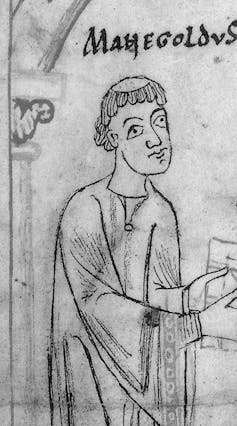
JK: Divination, the belief in gods, goddesses or a God, functions to put arbitrary power on a leash. Monks and nuns of the early Christian church were familiar with the admonition of St Augustine to all who held positions of power that they had an obligation to fear God and serve others in love and humility. The twelfth century CE monk Manegold of Lautenbach pushed this principle to its limits. He was no democrat. But he insisted, in the spirit of St Augustine, using the Roman language of the people, that misbehaving monarchs were tyrants who were subject to the God-given right of the people to overthrow them. Much the same insight was later developed by the Catholic philosopher Jacques Maritain, for whom religiosity – he had in mind a Christian God – was a living reminder to mortals that they should not behave like God or deities on earth; and that no individual or group was entitled to rule over others without limit. Sitting pompously on a throne of power, Maritain says in his Christianity and Democracy [first published in 1943]), is incompatible with belief in God. He pointed out that there’s a deep tension between the principle of a Sovereign People who think of themselves as the replacement of a deity on earth, and the belief in a transmundane beyond, ‘the more’. Against totalitarian manipulations of the Sovereign People principle, he called upon believers to stand up against arbitrary power. He thought that religious faith could be a weapon against hubris. It could serve as a barrier to the worship of earthly power. In Poland in the early 1980s, the case of Solidarność, a movement so infused with a strong spirit of Catholicism and democracy that it managed to break the back of Communism, showed that Maritain was on to something.

The text of this interview is reproduced with the kind permission of the Journal of Religious and Political Practice, volume 1, number 1 (2015), pp. 73–91.
